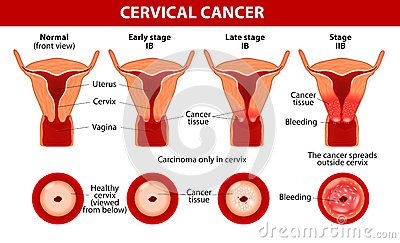HPV Vaccination Raises Hope For Complete Eradication Of Cervical Cancer, Scientists Say

The vaccinations against human papilloma virus (HPV) have played an important role in reducing cervical cancers. So, high coverage of this vaccination will be sufficient to eradicate this illness, says a group of scientists who worked on a major evidence based review.
Vaccinations against this virus, which is one of the main causes of cervical causes, started around a decade ago. According to the researchers, a significant decline in HPV cases has been witnessed within these 10 years.
With the continued coverage of HPV vaccinations, there could be a significant fall and a possible eradication of this chronic illness over the next few decades, the scientists said.
For the review, the researchers analyzed data of 65 studies that covered 60 million people belonging to high-income countries. They focussed on the rates of pre-cancerous growth in the cervix called CIN, genital warts and HPV.
When the researchers compared the rates of HPV cases before the introduction of vaccination and eight years after it, they found a significant decline in the rates. There were 83% decline in HPV cases 16 and 18 among girls between the age group of 15 and 19. While 66% decline was witnessed in women aged 20-24.
The review also reported that those who were not vaccinated did not get any benefits. The scientists even stated that a decline of HPV cases were more visible in countries with higher vaccination coverage. The rates also fall in those regions were people belonging to wider age groups were vaccinated.
“If sufficiently high vaccination coverage can be achieved and maintained” then the cervical cancer cases can be reduced to four per 100,000,” Marc Brisson, who led the review, said. “We will see reductions in women aged 20-30 within the next 10 years,” he added.
The researcher, who is also a professor at Laval University in Canada, even hoped for a complete eradication of this disease with higher vaccination coverage.
The Lancet review, titled Population-level impact and herd effects following the introduction of human papillomavirus vaccination programmes: updated systematic review and meta-analysis, was released on Wednesday.
There are around 3,200 cervical cases and over 800 deaths from this chronic illness are reported every year
“We sincerely hope this will boost public faith in the HPV vaccine, so that more lives can be saved and we get closer to a world where cervical cancer is a thing of the past,” Robert Music, chief executive of Jo's Cervical Cancer Trust, said.
© Copyright IBTimes 2024. All rights reserved.





















